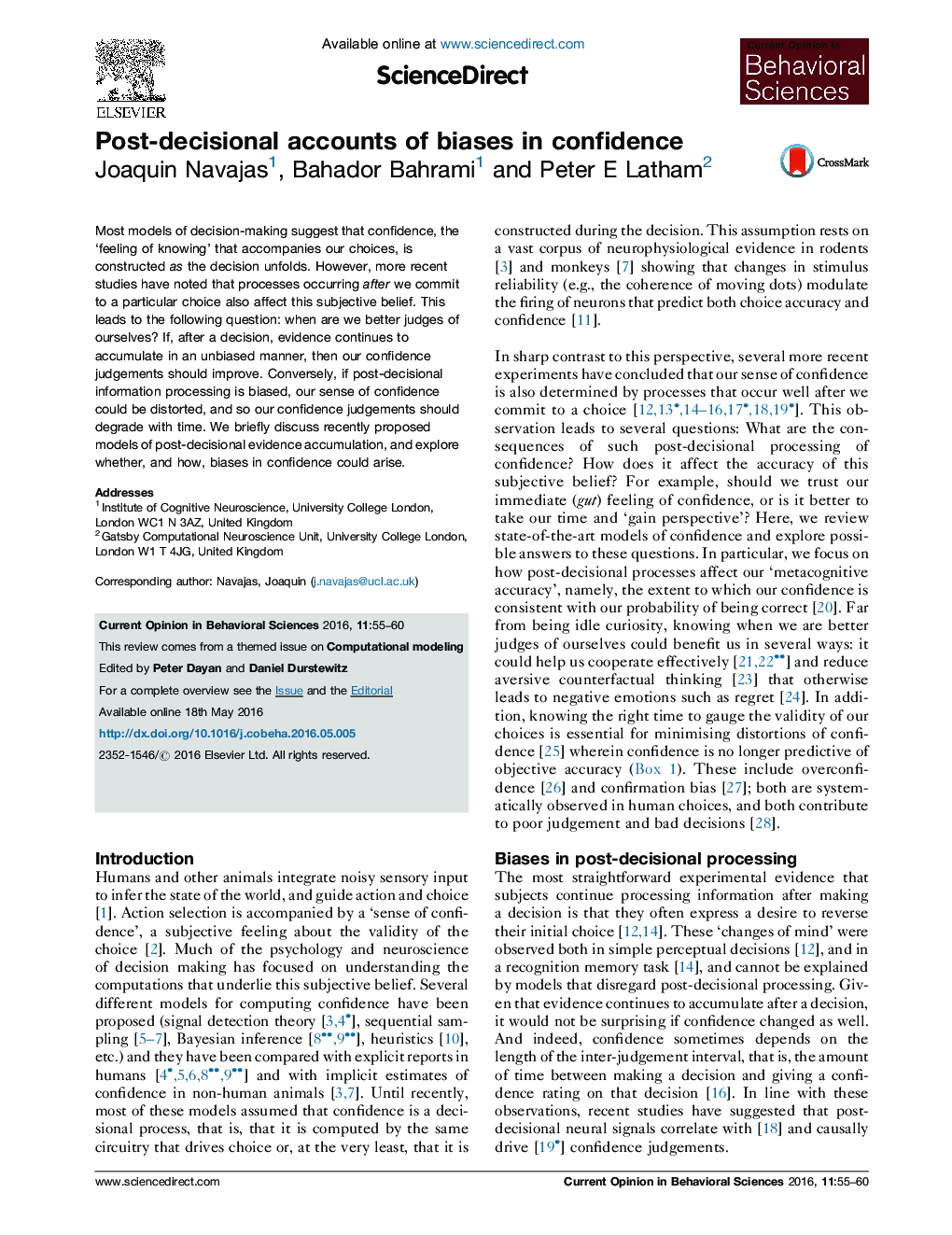| کد مقاله | کد نشریه | سال انتشار | مقاله انگلیسی | نسخه تمام متن |
|---|---|---|---|---|
| 6260443 | 1613079 | 2016 | 6 صفحه PDF | دانلود رایگان |
- Confidence in decision-making is often regarded as a process that is constructed during choice.
- Recent experimental findings suggest, however, that post-decisional processes modulate our sense of confidence.
- These processes can improve our confidence judgements, but also distort them if information processing is biased.
- We discuss models of decision-making that contemplate different biases in post-decisional processing.
- We explore possible explanations for the origin and function of these biases.
Most models of decision-making suggest that confidence, the 'feeling of knowing' that accompanies our choices, is constructed as the decision unfolds. However, more recent studies have noted that processes occurring after we commit to a particular choice also affect this subjective belief. This leads to the following question: when are we better judges of ourselves? If, after a decision, evidence continues to accumulate in an unbiased manner, then our confidence judgements should improve. Conversely, if post-decisional information processing is biased, our sense of confidence could be distorted, and so our confidence judgements should degrade with time. We briefly discuss recently proposed models of post-decisional evidence accumulation, and explore whether, and how, biases in confidence could arise.
Journal: Current Opinion in Behavioral Sciences - Volume 11, October 2016, Pages 55-60
